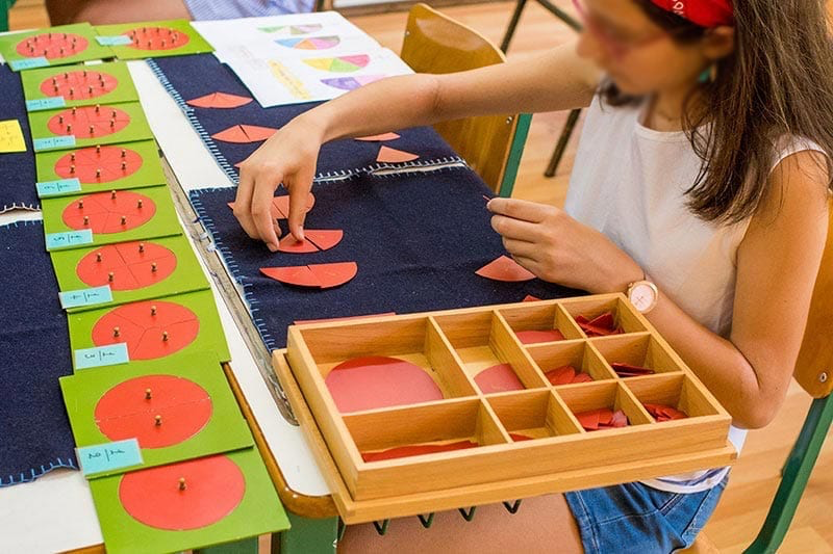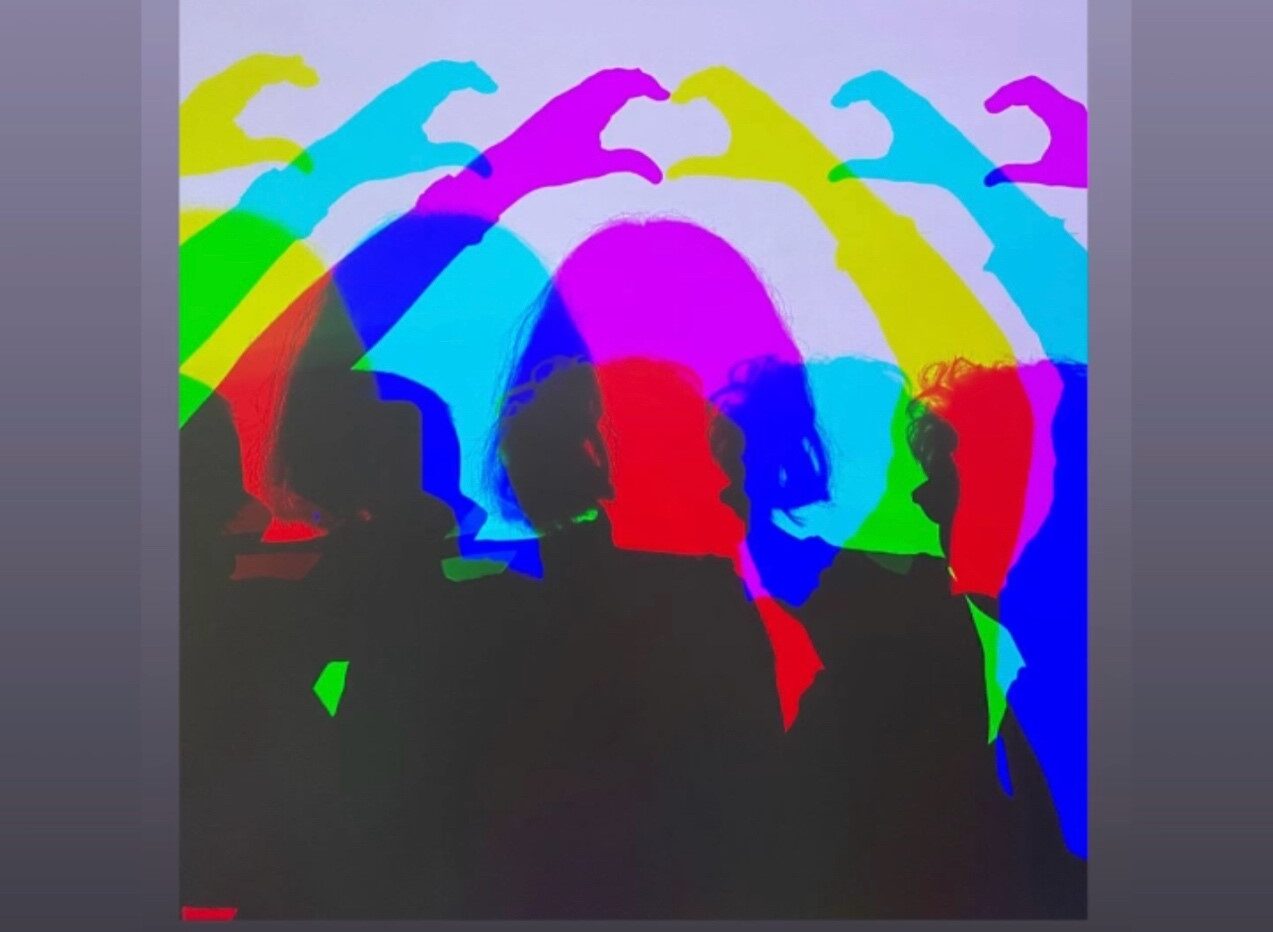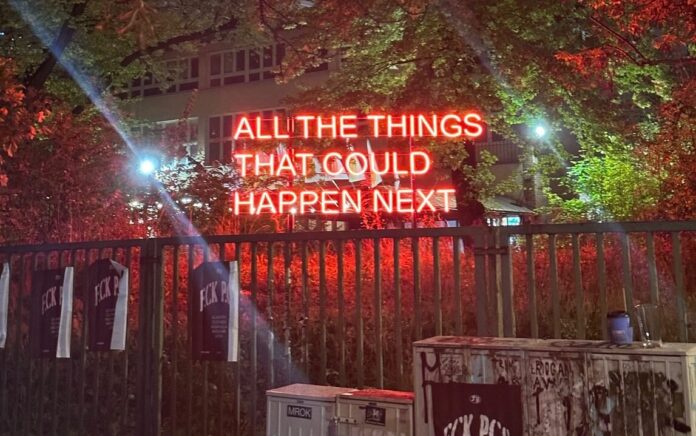By Evi Tsakali,
Normally, I write my articles in one sitting, but this one is different; because it is the last one. This one I have revisited so many times I have probably lost count, most of the times not even writing a single word. I have procrastinated this article maybe even more than my master’s thesis (which –thank God– will have been submitted by the time this is published), and after months of wondering I came to terms with why: goodbyes are hard. Goodbyes are hard, as last year taught me a great deal, and goodbyes are even harder when you don’t get to say them in your own terms, to say all you wanted; and I want my story told, for those who care (and for whom I care). Hence, I couldn’t find any better time to break my (writing) silence than during a flight back to Warsaw after having spent the past week in three cities that I call home (Athens-Paris-Warsaw); with such an emotional baggage (yes, wordplay intended) I think I’m ready.
Saying goodbye to writing for this column is hard, because it is like bidding farewell to a steady factor that was there while everything was changing: it outlived my undergraduate studies and thus my stay in Paris, and –sadly– some of my friendships, while my presence in the website coexists with situations, and people, that make me happy. In fact, I met one of my closest friends some days before joining the column, one of our first bonding experiences being drinking until late the night before my interview (the realization that we’ve been friends for as long as I am part of this column shook us both recently). Suffice it to say that –after three and a half years– my experience as a writer is almost intertwined with my loved ones; and from very early on, my articles would be either about them, or inspired by them (and dedicated to them). As my aforementioned friend would put it, to me my articles are “a means of communication” (such a perfectly diplomatic way to encapsulate the message he wanted to convey in the context that we were discussing it). It is through some handpicked backstories and between-the-lines that I will walk you for my last article, because, if you have done something really right or really wrong, you will probably find yourself in there, understanding something that the others don’t, in otherwise topic specific texts. Without further due, the following are some (due to fear of the word count) categories that come to mind…
The Montessori system
Probably the most straightforward of cases, this article was a homage to the Montessori system –which I strongly support– providing an insight of how I got to experience it as a former Montessori school student, in order to answer some frequent questions that I (gladly) get about the Montessori method. The cover photo is actually from my school, and my middle sister Joanna is pictured.

Lost in the alleys of diplomacy
“International organizations do not function well/have not delivered” and such variants had for long dominated our political discussions in Paris, sometimes more to tease each other, sometimes more seriously (occasionally to a point of tension). Regardless, I still read the line in quotation marks with specific voices in my head, so when I wrote “Inertia or resilience? IO’s response to state contestation”, I did it for them. Actually, since at the time I was the editor in chief of the English Edition and -as such- the one scheduling the articles’ publications, I posted it intentionally on the day we would get our winter semester grades, so that whatever happened something would put a smile on their faces.
Amour, haine et danger: France
The presence of France, its society and its politics is abundant in many of my articles, even now that I am in Poland. This is also what led to the offer to write for the French 2022 Elections Observatory column in Greek. That period in the website was probably the one I shared with my people the most, as we were all very interested and opinionated on the topic, and I certainly passed the nights of both rounds of the Presidential elections (which I had to cover for the first analysis of the morning after) in good company. When I look at these articles, I definitely remember some good times along with some unfortunate events, a tumultuous period that encompassed joy and laughter, but also misunderstandings and tension (tout ça dans un objet, amour, haine et danger, sings Angèle).

When I look at these articles, I think of the people sitting next to me in study rooms and amphitheaters while I was writing them, the people who suggested sources and offered insights; the people whose signature some of those articles could bear… and I am not exaggerating. When the French elections’ observatory project began a month before the actual elections, the administration expected us to kick it off with a more historical approach, featuring articles about the Presidents of the 5e République. It was an academically challenging period, full of mid-terms, tests, and assignments (like pretty much always in Paris 1) and I was complaining over texts to someone about how –with everything else going on– I had to fit Mitterrand’s terms in office in an article and I didn’t know where to start. In the beginning I was left on seen (some would call it an acknowledgement) and almost laughing to the audacity I went for a coffee refill. When I came back, the notification I saw, almost as long as an essay, was a detailed list of whatever I needed to write, written and texted on the spot. That message would become the article on Mitterrand; the words (though translated and with transitions) are his, and I like to think that so is the article. The same person would later inspire another article for this project by simply saying “Edouard Philippe 2027” (in that steadfast and certain manner that managed to convince you). While this may now seem pretty obvious, back then it was very insightful (the media had not dug up on that yet), and it resulted in an article that was ahead of its time.




